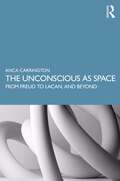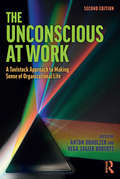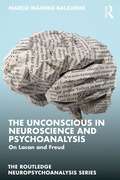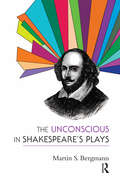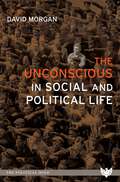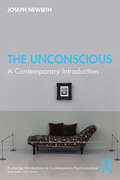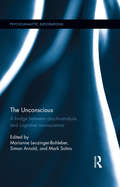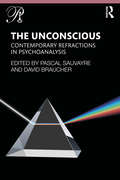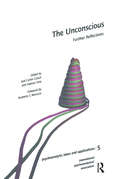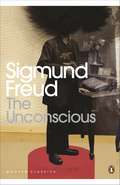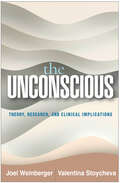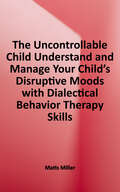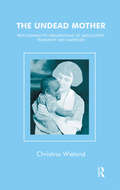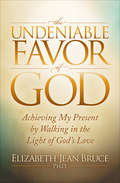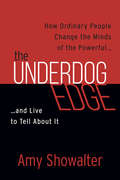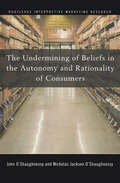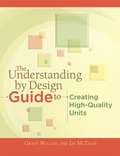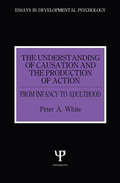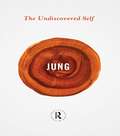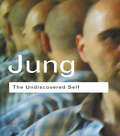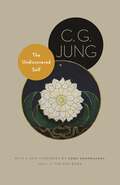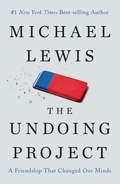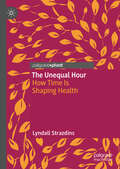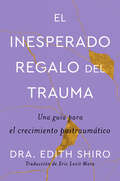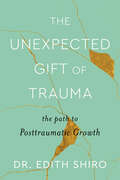- Table View
- List View
The Unconscious as Space: From Freud to Lacan, and Beyond
by Anca CarringtonThe Unconscious as Space explores the experience of being and the practice of psychoanalysis by thinking of the unconscious in mathematical terms.Anca Carrington introduces mathematical models of space, from dimension theory to algebraic topology and knot theory, and considers their immediate psychoanalytic relevance. The hypothesis that the unconscious is structured like a space marked by impossibility is then examined. Carrington considers the clinical implications, with particular focus on the interplay between language and the unconscious as related topological spaces in which movement takes place along knot-like pathways.The Unconscious as Space will be of appeal to psychotherapists, psychoanalysts and mental health professionals in practice and in training.
The Unconscious at Work: A Tavistock Approach to Making Sense of Organizational Life
by Anton Obholzer Vega Zagier RobertsWhy do our organizations so often seem to be less than the sum of their parts? What undermines effectiveness and morale, and gets in the way of achieving what we set out to do? The Unconscious at Work, Second Edition draws on a body of thinking and practice which has developed over the past 70 years, often referred to as 'the Tavistock approach' or 'systems-psychodynamics'. All the contributors are practising consultants who draw on this framework, bringing it alive and making it useful to any reader – manager, leader or consultant, regardless of whether they have any prior familiarity with the underlying concepts – who is curious about what might be driving the puzzling or stressful situations they find in their workplace. The First Edition was addressed to people working in 'the human services': health, social care and education. Since it was published in 1994, there has been growing interest in the business world, and in understanding more about the 'irrational' side of organizational life. Therefore, this Second Edition includes an entirely new section where the key ideas are revisited and illustrated with case studies from a wide range of business organizations, from large corporations to start-ups and family businesses. The aim, however remains the same: to enlarge readers' existing sense-making 'tool-kits' so that they can look at themselves and their organizations with fresh eyes, deepening the emotional intelligence they bring to bear on the challenges they face and providing new possibilities for action. The Unconscious at Work, Second Edition is for managers, leaders, consultants, and anyone working in organizations who has been puzzled, disturbed or challenged by their experiences at work.
The Unconscious in Neuroscience and Psychoanalysis: On Lacan and Freud (The Routledge Neuropsychoanalysis Series)
by Marco Máximo BalzariniThe Unconscious in Neuroscience and Psychoanalysis presents a unique and provocative approach to the assimilation of these two disciplines while offering a thorough assessment of the unconscious from a neuropsychoanalytic and Lacanian perspective.Marco Máximo Balzarini offers a comprehensive overview of Freud’s theory of the unconscious and its importance within psychoanalysis, before looking to how it has been integrated into contemporary neuropsychoanalytic work. Paying close attention to the field-defining work of neuropsychoanalysts such as Mark Solms, Francois Ansermet, and Pierre Magistretti, Balzarini considers the dichotomy between neuroscience and psychoanalysis, and the omnipresent debate on if and how they should be integrated when working with the unconscious. Throughout, he provides a fascinating Lacanian interpretation, showing how the work of Lacan can offer a new way of developing the dialogue and understanding around this vital topic.Part of the Routledge Neuropsychoanalysis Series, this book will be of interest to any psychoanalyst seeking to explore the foundations of the relationship between neuropsychoanalytic and Lacanian ideas in their clinical and theoretical work.
The Unconscious in Shakespeare's Plays
by Martin S. BergmannJust as concerts emerge from the interaction of many instruments, so our understanding of Shakespeare is enriched by different approaches to him. Psychoanalysis assumes that creative writers have the need to both reveal and conceal their own inner conflicts in their works. They leave residues in their works that, if we pay attention, can become building blocks that reveal aspects of the unconscious. Readers may find that the questions raised add to the pleasure of reading Shakespeare and that they deepens their understanding of his plays. Topics covered include the pivotal position of Hamlet, the poet and his calling, the Oedipus complex, intrapsychic conflict, the battle against paranoia and the homosexual compromise. By using psychoanalytic techniques in analyzing his plays and characters, the author reveals more about Shakespeare's hidden motivations and mental health.
The Unconscious in Social and Political Life (The Political Mind)
by David MorganTraumatic events happen in every age, yet there is a particularly cataclysmic feeling to our own epoch that is so attractive to some and so terrifying to others. The terrible events of September 11th 2001 still resonate and the repercussions continue to this day: the desperation of immigrants fleeing terror, the uncertainty of Brexit, Donald Trump in the White House, the rise of the alt-right and hard left, increasing fundamentalism, and terror groups intent on causing destruction to the Western way of life. If that were not enough, we also have to grapple with the enormity of climate change and the charge that if we do not act now, it will be too late. Is it any wonder many are left overwhelmed by the events they see on the news? Galvanised by the events outside of his consulting room, in 2015, David Morgan began The Political Mind seminars at the British Psychoanalytical Society and their successful run continues today. A series of superlative seminars, mostly presented by colleagues from the British Society plus a few select external experts, that examine a dazzling array of relevant topics to provide a psychoanalytic understanding of just what is going on in our world. This book is the first in The Political Mind series to bring these seminars to a wider audience. The Unconscious in Political and Social Life contains compelling contributions from Christopher Bollas, Michael Rustin, Jonathan Sklar, David Bell, Philip Stokoe, Roger Kennedy, David Morgan, M. Fakhry Davids, Ruth McCall, R. D. Hinshelwood, Renee Danziger, Josh Cohen, Sally Weintrobe, and Margot Waddell. They investigate so many vital issues affecting us today: the evolution of democracy, right-wing populism, prejudice, the rise of the far right, attitudes to refugees and migrants, neoliberalism, fundamentalism, terrorism, the Palestine-Israel situation, political change, feminism, austerity in the UK, financial globalisation, and climate change. This book needs to be read by all who are concerned by the state of the world today. Psychoanalysis and psychoanalysts with their awareness of what motivates human beings bring clarity and fresh insight to these matters. A deeper understanding of humanity awaits the reader of The Unconscious in Political and Social Life.
The Unconscious: A Contemporary Introduction (Routledge Introductions to Contemporary Psychoanalysis)
by Joseph NewirthIn The Unconscious: A Contemporary Introduction, Joseph Newirth presents a critical and comparative analysis of the unconscious and its evolution from a positivist to a postmodern frame of reference. This book presents five theories, each of which offers different and important conceptualizations of the unconscious, and each of which contains a rich palate of ideas through which to approach clinical work. These psychoanalytic theories are thought of as spokes on a wheel emanating from the center of Freud’s concept of the unconscious. In addition to presenting Freud’s development of the unconscious, Newirth includes discussions of interpersonal/relational psychoanalysis; developmental approaches to the unconscious, including Kohut, Winnicott, and Fonagy; Kleinian approaches to the unconscious; and linguistic theories of the unconscious including Matte Blanco and Lacan. The last chapter illustrates the use of contemporary psychoanalytic concepts in the clinical work with a contemporary patient. The book encourages a comparative view of psychoanalytic theory and technique and aims to move to a more useful, generalizable concept of the unconscious for the contemporary patient. This book will be of great interest to psychoanalysts, psychologists, and anyone interested in the evolution and application of the unconscious as a concept.
The Unconscious: A bridge between psychoanalysis and cognitive neuroscience (Psychoanalytic Explorations)
by Mark Solms Marianne Leuzinger-Bohleber Simon ArnoldThe Unconscious explores the critical interdisciplinary dialogue between psychoanalysis and contemporary cognitive neuroscience. Characterised by Freud as ‘the science of the unconscious mind’, psychoanalysis has traditionally been viewed as a solely psychological discipline. However recent developments in neuroscience, such as the use of neuroimaging techniques to investigate the working brain, have stimulated and intensified the dialogue between psychoanalysis and these related mental sciences. This book explores the relevance of these discussions for our understanding of unconscious mental processes. Chapters present clinical case studies of unconscious dynamics, alongside theoretical and scientific papers in key areas of current debate and development. These include discussions of the differences between conceptualisations of ‘the unconscious’ in psychoanalysis and cognitive science, whether the core concepts of psychoanalysis are still plausible in light of recent findings, and how such understandings of the unconscious are still relevant to treating patients in psychotherapy today. These questions are explored by leading interdisciplinary researchers as well as practising psychoanalysts and psychotherapists. This book aims to bridge the gap between psychoanalysis and cognitive neuroscience, to enable a better understanding of researchers’ and clinicians’ engagements with the key topic of the unconscious. It will be of key interest to researchers, academics and postgraduate students in the fields of psychoanalysis, cognitive science, neuroscience and traumatology. It will also appeal to practising psychoanalysts, psychotherapists and clinicians.
The Unconscious: Contemporary Refractions In Psychoanalysis (Psychoanalysis in a New Key Book Series)
by Pascal Sauvayre David BraucherThis book explores the unconscious in psychoanalysisusing cross-disciplinary input from the cultural, social and linguistic perspectives. This book is the first contemporary collection applying the various perspectives from within the psychoanalytic discipline. It covers the unconscious from three main perspectives: the metaphysical, including links with quantum mechanics and Jung's thought; the socio-relational, drawing on ideas from politics, inter-generational trauma and the interpersonal; and the linguistic, drawing on notions of the social construct of language and hermeneutics. Throughout the history of psychoanalysis, theorists have wrestled with the ubiquitousness and diverse nature of the unconscious. This collection is an account of the contemporary psychoanalytic struggle to understand and work with this quintessential, defining, and foundational object of psychoanalysis. This book is primarily of interest to practicing clinicians and trainees. It is also of significant interest to any academic professionals and students who adapt psychoanalytic thought in their studies in the humanities, including literature, philosophy, and the social sciences.
The Unconscious: Further Reflections (The International Psychoanalytical Association Psychoanalytic Ideas and Applications Series)
by Jose C. CalichThis book provides contemporary perspectives concerning Freud's fundamental assumptions on the unconscious. It presents some of the original theoretical developments and the cogitations on the unconscious, from various world regions and different thought orientations.
The Unconscious: The Psychology Of Art, Literature, Love, And Religion (Penguin Modern Classics)
by Sigmund FreudOne of Freud's central achievements was to demonstrate how unacceptable thoughts and feelings are repressed into the unconscious, from where they continue to exert a decisive influence over our lives.This volume contains a key statement about evidence for the unconscious, and how it works, as well as major essays on all the fundamentals of mental functioning. Freud explores how we are torn between the pleasure principle and the reality principle, how we often find ways both to express and to deny what we most fear, and why certain men need fetishes for their sexual satisfaction. His study of our most basic drives, and how they are transformed, brilliantly illuminates the nature of sadism, masochism, exhibitionism and voyeurism.
The Unconscious: Theory, Research, and Clinical Implications (Psychoanalysis and Psychological Science)
by Joel Weinberger Valentina StoychevaWeaving together state-of-the-art research, theory, and clinical insights, this book provides a new understanding of the unconscious and its centrality in human functioning. The authors review heuristics, implicit memory, implicit learning, attribution theory, implicit motivation, automaticity, affective versus cognitive salience, embodied cognition, and clinical theories of unconscious functioning. They integrate this work with cognitive neuroscience views of the mind to create an empirically supported model of the unconscious. Arguing that widely used psychotherapies--including both psychodynamic and cognitive approaches--have not kept pace with current science, the book identifies promising directions for clinical practice.
The Uncontrollable Child: Understand and Manage Your Child's Disruptive Moods With Dialectical Behavior Therapy Skills
by Matis MillerEvidence-based skills, insight, and methods drawn from dialectical behavior therapy (DBT) to help you gain a greater understanding of your child's behavior, parent them with compassion and confidence, and restore peace to your home. Is your child extremely irritable most of the time? Do they have difficulty interpreting social cues? Are they impulsive and prone to outbursts or explosive rages? <p><p>Parenting a child who has emotional dysregulation can be a bumpy ride. You've probably received advice—some of it unsolicited—from friends, teachers, and family members. But strategies and techniques that work for other kids are usually ineffective when it comes to your unique child, and can even lead to more stress for everyone in your family. <p><p>The Uncontrollable Child is here to help. Written for parents of children with emotion dysregulation disorders, including disruptive mood dysregulation disorder (DMDD), The Uncontrollable Child is a lifeline. It contains a powerful set of skills based in dialectical behavior therapy (DBT)--including mindfulness, validation, limit-setting, and behavior-shaping—to help you better understand your child and their behavior, and successfully find balance between acceptance and change, flexibility and consistency, and limits and love. As a parent, you want the very best for your child, but if you have a child with explosive emotions, you need extra help. Let this book guide you toward creating a nurturing, healthy, and loving environment in which your whole family can thrive.
The Undead Mother: Psychoanalytic Explorations Of Masculinity, Feminity And Matricide
by Christina Wieland‘A state of mourning is something that the late twentieth century has been uniquely unable to achieve. A culture based on the interchongeobility of products and people, a throw-away culture, is not conducive to mourning…Inanimate objects hove replaced human ideals. A culture of ‘virtual reality’ which finds it difficult to distinguish between the living and the inanimate has been created - a culture of the undead. This culture is not grounded on human relationships but in the destruction of them.’ In this book, Christina Wieland offers the reader a far-reaching and devastating critique of masculinity, femininity, and contemporary culture. Drawing inspiration from the work of Melanie Klein, the author demonstrates how the Western psyche is based upon denial of the power of the mother, and the elevation of the fother into a repressive, authoritorion figure. This act of universal motricide has wrought havoc throughout Western culture. As Wieland graphically illustrates, both women and men ore denied the opportunity to mourn their separation from the mother, but must contend instead with the guilt that surrounds her murder, and the ever-present terror of her vengeful return – as ‘the undead mother’. Re-appraising masculinity and femininity, the author re-visits a wide and fascinating range of myths, fairytales and stories. Her critique casts new light on the writings of Freud, Klein, Kristeva and Irigaray. Her vivid presentations of clinical material also show how ihe undead mother mokes her presence felt in the consuhing room, and the steps which con be taken towards more genuine, reparative mourning.
The Undeniable Favor of God: Achieving My Present by Walking in the Light of God's Love
by Elizabeth Jean BruceA licensed psychologist and trauma expert shares the story of how she met life&’s challenges and achieved personal fulfillment through faith. Having a sense of purpose significantly contributes to the quality of our lives. Many people experience God-given &“callings&” to achieve distinctive goals in life. These yearnings give us a sense of fulfillment by showing how we fit into the wholeness of creation. But discovering our purpose and establishing a major long-term goal are only the first steps of the journey. We must also understand what is required of us to reach our final destination, and make sure to note the milestones we achieve along the way. There will be difficult periods during the journey. To see our way through them, it helps to surround ourselves with people who strengthen our emotional, physical, and spiritual well-being. We must also utilize our faith in God, who keeps us fortified to endure disheartening times. Dr. Bruce believes that wonderful things happen as life unfolds. In The Undeniable Favor of God, she teaches others how to focus on the beauty, truth, and light of life.
The Underdog Edge: How Ordinary People Change the Minds of the Powerful . . . and Live to Tell About It
by Amy ShowalterA prominent consultant reveals secrets to help you influence and persuade others—even when you aren&’t in a position of power. We all have occasions in which we want or need to persuade someone of greater clout, prestige, or authority to see things our way. There are books that show how to effect change from a leadership position or how to work with peers within your own organization—but what can you do when you need to exert &“upward influence&” with decision makers who can help you achieve your goals? In this book, a popular speaker and successful consultant with expertise in grassroots efforts shows which tactics are most successful when you&’re the underdog. She also shares real-world stories of everyday people who have achieved persuasion success in politics and business with someone up the food chain, the peer-reviewed science behind their success—as well as insights from those whose minds they changed.
The Undermining of Beliefs in the Autonomy and Rationality of Consumers
by Nicholas O'Shaughnessy John O'ShaughnessyThis book examines modern consumption, focusing on concepts of autonomy and rationality. In recent years, conventional ideas of 'free will' have come under attack in the context of consumer choice and similarly, postmodernists have sabotaged the very notion of consumer rationality. O Shaughnessy and O'Shaughnessy adopt a moderating perspective, rev
The Understanding by Design Guide to Creating High-Quality Units
by Grant Wiggins Jay McTigheThis guide is intended for K-16 educators either individuals or groups who may have received some training in Understanding by Design and want to continue their work independently; those who've read Understanding by Design and want to design curriculum units but have no access to formal training; graduate and undergraduate students in university curriculum courses; and school and district administrators, curriculum directors, and others who facilitate Understanding by Design work with staff. Users can go through the modules in sequence or skip around, depending on their previous experience with UbD and their preferred curriculum design style or approach. Unit creation, planning, and adaptation are easier than ever with the accompanying downloadable resources, including the Understanding by Design template set up as a fillable PDF form, additional worksheets, examples, and FAQs about the module topics that speak to Understanding by Design novices and veterans alike.
The Understanding of Causation and the Production of Action: From Infancy to Adulthood (Essays in Developmental Psychology)
by Peter Anthony WhiteThis text is an attempt to trace out a line of development in the understanding of how things happen, from origins in infancy to mature forms in adulthood. There are two distinct but related ways in which people understand things as happening, denoted by the terms "causation" and "action". This book is concerned with both.; The central claim and organizing principle of the book is that, by the end of the second year of life, children have differentiated two core theories of how things happen. These theories deal with causation and action. The two theories have a common point of origin in the infant's experience of producing actions, but thereafter diverge, both in content and in realm of application. Once established, the core theories of causation and action never change, but form a permanent metaphysical underpinning on which subsequent developments in the understanding of how things happen are erected. The story of development is therefore largely the story of how further concepts become attached to integrated with the core theories. Although the developmental and adult literatures on causal understanding appear at first glance to have little in common, in fact this appearance is illusory, and the idea of two theories helps to bring the two literatures in contact with each other.; The book begins with a survey of the main philosophical ideas about causation and action. Following this, the possible origins of understanding in infancy are reviewed, and separate chapters then deal with the development of understanding of action and causation through childhood. This is then linked to the adult understanding of action and causation, and the literature on adult causal attribution and causal judgement is reviewed from this perspective.
The Undiscovered Self (Routledge Great Minds)
by Carl Gustav JungWritten three years before his death, The Undiscovered Self combines acuity with concision in masterly fashion and is Jung at his very best. Offering clear and crisp insights into some of his major theories, such as the duality of human nature, the unconscious, human instinct and spirituality, Jung warns against the threats of totalitarianism and political and social propaganda to the free-thinking individual. As timely now as when it was first written, Jung's vision is a salutary reminder of why we should not become passive members of the herd. With a new foreword by Sonu Shamdasani.
The Undiscovered Self: Answers to Questions Raised by the Present World Crisis (Routledge Classics)
by C. G. JungIn The Undiscovered Self Jung explains the essence of his teaching for a readership unfamiliar with his ideas. He highlights the importance of individual responsibility and freedom in the context of today's mass society, and argues that individuals must organize themselves as effectively as the organized mass if they are to resist joining it. To help them achieve this he sets out his influential programme for achieving self-understanding and self-realization. The Undiscovered Self is a book that will awaken many individuals to the new life of the self that Jung visualized.
The Undiscovered Self: With Symbols and the Interpretation of Dreams (Jung Extracts #31)
by C. G. JungThese two essays, written late in Jung's life, reflect his responses to the shattering experience of World War II and the dawn of mass society. Among his most influential works, "The Undiscovered Self" is a plea for his generation--and those to come--to continue the individual work of self-discovery and not abandon needed psychological reflection for the easy ephemera of mass culture. Only individual awareness of both the conscious and unconscious aspects of the human psyche, Jung tells us, will allow the great work of human culture to continue and thrive. Jung's reflections on self-knowledge and the exploration of the unconscious carry over into the second essay, "Symbols and the Interpretation of Dreams," completed shortly before his death in 1961. Describing dreams as communications from the unconscious, Jung explains how the symbols that occur in dreams compensate for repressed emotions and intuitions. This essay brings together Jung's fully evolved thoughts on the analysis of dreams and the healing of the rift between consciousness and the unconscious, ideas that are central to his system of psychology. This paperback edition of Jung's classic work includes a new foreword by Sonu Shamdasani, Philemon Professor of Jung History at University College London.
The Undoing Project: A Friendship That Changed Our Minds
by Michael Lewis<P>How a Nobel Prize-winning theory of the mind altered our perception of reality. <P>Forty years ago, Israeli psychologists Daniel Kahneman and Amos Tversky wrote a series of breathtakingly original studies undoing our assumptions about the decision-making process. Their papers showed the ways in which the human mind erred, systematically, when forced to make judgments in uncertain situations. Their work created the field of behavioral economics, revolutionized Big Data studies, advanced evidence-based medicine, led to a new approach to government regulation, and made much of Michael Lewis's own work possible. Kahneman and Tversky are more responsible than anybody for the powerful trend to mistrust human intuition and defer to algorithms. <P>The Undoing Project is about a compelling collaboration between two men who have the dimensions of great literary figures. They became heroes in the university and on the battlefield--both had important careers in the Israeli military--and their research was deeply linked to their extraordinary life experiences. Amos Tversky was a brilliant, self-confident warrior and extrovert, the center of rapt attention in any room; Kahneman, a fugitive from the Nazis in his childhood, was an introvert whose questing self-doubt was the seedbed of his ideas. They became one of the greatest partnerships in the history of science, working together so closely that they couldn't remember whose brain originated which ideas, or who should claim credit. They flipped a coin to decide the lead authorship on the first paper they wrote, and simply alternated thereafter. <P>This story about the workings of the human mind is explored through the personalities of two fascinating individuals so fundamentally different from each other that they seem unlikely friends or colleagues. In the process they may well have changed, for good, mankind's view of its own mind. <P><b>A New York Times Bestseller</b>
The Unequal Hour: How Time Is Shaping Health
by Lyndall StrazdinsThis book is about the urgent need to have time for health. It's about why people don’t exercise, rest or eat healthy food even when they know they need to. Time has become the prescription needed to halt chronic diseases, 30 minutes of physical activity every day is a minimum, but this book argues against telling people to do more. It explains why it’s not laziness, ignorance or lack of motivation that’s the problem for unhealthy lifestyles, and why so many people lack time for their health. The book connects ideas from economics, sociology, political economy and public health to work-family dilemmas, gender and social inequality. It ends by canvassing interventions and actions from the personal, to the workplace, health promotion and urban design.
The Unexpected Gift of Trauma \ El insospechado regalo del trauma (Sp.): Una guía para el crecimiento postraumático
by Dr. Edith ShiroUn revolucionario libro sobre el trauma, que ofrece a los lectores un esquema de cinco etapas para alcanzar el crecimiento postraumático.El trauma siempre ha sido parte de la experiencia humana, y los eventos traumáticos —tanto físicos como emocionales— pueden trastornar todo nuestro ser y cambiarnos para siempre. Aunque sabemos más que hace diez años acerca de los efectos neurológicos y físicos a largo plazo que deja el trauma, pocos se dan cuenta de que la experiencia del trauma no tiene que condenarlos a una vida de sufrimiento y duelo.En este libro único, la renombrada psicóloga Edtih Shiro comparte un poderos esquema de cinco pasos para el crecimiento postraumático, un proceso terapéutico que ayuda no solo a recuperarse, sino a experimentar crecimiento y renovación después del trauma. Inspirada por sus abuelos, que fueron refugiados y sobrevivientes del Holocausto, la Dra. Shiro ha dedicado su vida a estudiar el trauma y sus secuelas. Desarrolladas a lo largo de más de tres décadas de investigación y práctica, las etapas que propone Shiro —conciencia, despertar, llegar a ser, ser y transformarse— explican cómo el trauma puede ser un catalizador para el cambio positivo y transformador. Fundado en la ciencia y lleno de herramientas prácticas y enseñanzas, El inesperado regalo del trauma revela una nueva y revolucionaria forma de ver el trauma y recuperarse de sus efectos. A groundbreaking book on trauma that offers readers a five-stage framework for achieving posttraumatic growth.Trauma has always been part of the human experience, and traumatic events – both physical and emotional –can shake our very foundation and leave us forever changed. While we know more about the lasting neurological and physical effects of trauma than we did a decade ago, few people realize that experiencing trauma doesn’t have to sentence you to a lifetime of suffering and grief.In this first book of its kind, renowned psychologist Dr. Edith Shiro shares a powerful, five-stage framework for posttraumatic growth, a therapeutic process that helps you not just recover, but experience growth and renewal in wake of trauma. Inspired by her grandparents, who were refugees and Holocaust survivors, Dr. Edith Shiro has dedicated her life to the study of trauma and its aftereffects. Developed over more than three decades of research and practice, Shiro’s stages – Awareness, Awakening, Becoming, Being, and Transforming – outline how trauma can be a catalyst for positive, transformative change.Grounded in science and filled with practical tools and takeaways, The Unexpected Gift of Trauma reveals a groundbreaking new way to think about and heal from trauma.
The Unexpected Gift of Trauma: The Path to Posttraumatic Growth
by Dr. Edith ShiroA groundbreaking approach to healing from trauma and experiencing posttraumatic growth from a leading psychologist, featuring a powerful, five-stage framework to help readers not just recover, but thrive and transform. Trauma has always been part of the human experience, and traumatic events—both physical and emotional—can shake our very foundation and leave us forever changed. While we know more about the lasting neurological and physical effects of trauma than we did a decade ago, few people realize that experiencing trauma doesn’t have to sentence you to a lifetime of suffering and grief.In this first book of its kind, renowned clinical psychologist Dr. Edith Shiro shares a powerful, five-stage framework for posttraumatic growth, a transformational process that helps you not just heal, but achieve growth and expand consciousness in the face of trauma. Inspired by her grandparents, who were refugees and Holocaust survivors, Dr. Shiro has dedicated her life to individuals, families, and communities facing trauma and its aftereffects. Developed over more than twenty-five years of research and practice, Dr. Shiro’s stages—Awareness, Awakening, Becoming, Being, and Transforming— provide a universal language and outline how trauma can be a catalyst for transformative growth.Grounded in science and psychology, and filled with practical tools and takeaways, The Unexpected Gift of Trauma offers a bold a new definition of trauma, touching on individual as well as collective and intergenerational trauma. Dr. Shiro brings the power of posttraumatic growth to the forefront and reveals a groundbreaking new way to think about and heal from traumatic experiences.
